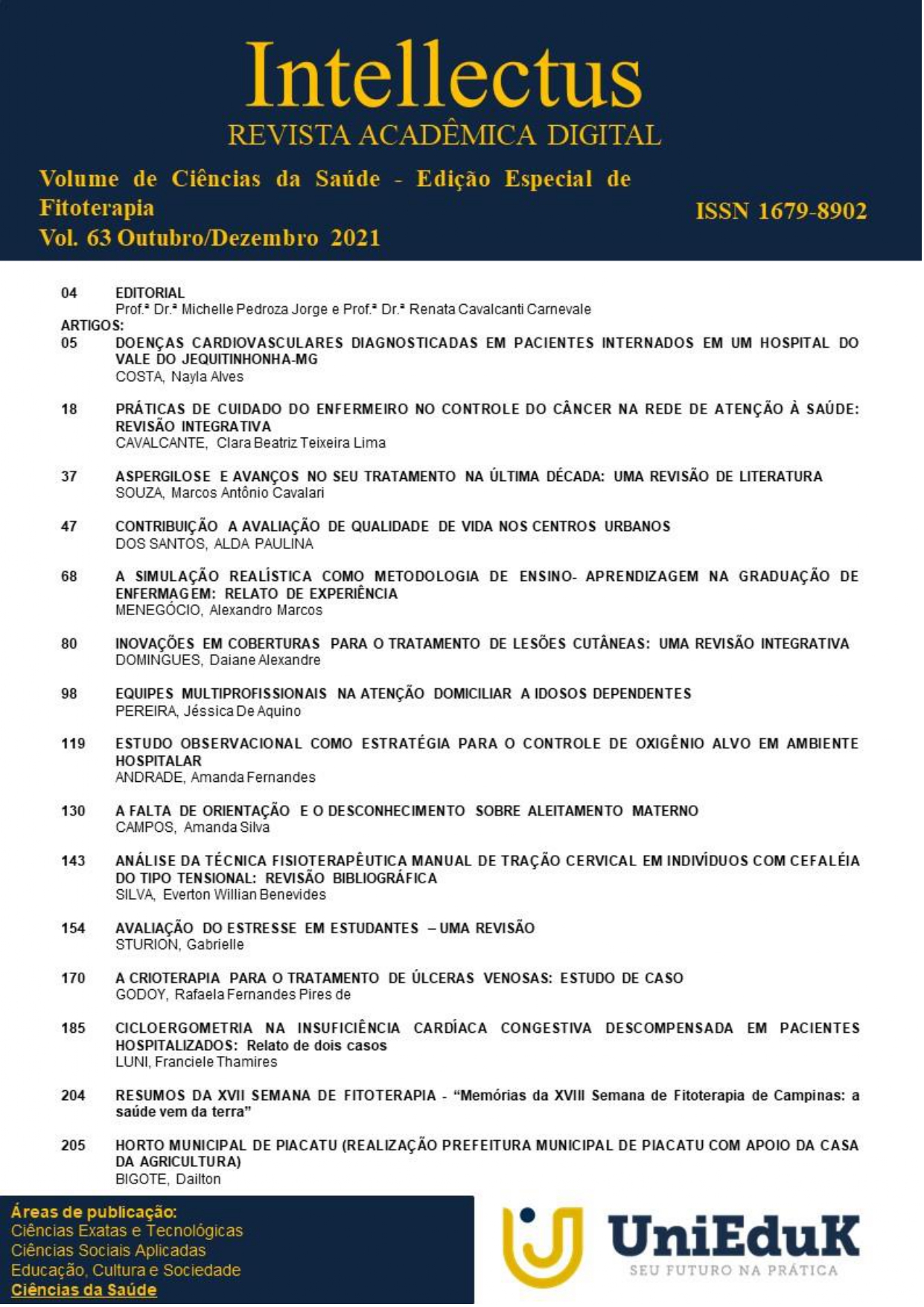Cycloergometry in congestive heart failure in hospitalized patients
report of two cases
Keywords:
Congestive heart failure, Early mobilization, Respiratory musclesAbstract
Heart failure is a cardiac pumping failure that decreases blood ejection, rendering the heart unable to supply the output needed by metabolism. When there are retrograde changes due to this failure, called congestive heart failure (CHF), systemic and pulmonary congestion may occur, affecting both lung function and respiratory muscles. The objective was to verify the influence of early mobilization through cycloergometry in hospitalized patients with decompensated CHF and to evaluate hemodynamic changes, cardiorespiratory functional capacity, and exercise. Two male volunteers with hypothesis diagnostic of decompensated CHF, with functional class III participated in the study according to the New York Heart Association (NYHA) classification. Initial and final assessment of vital signs collection, maximum inspiratory pressure, maximum expiratory pressure was performed, peak expiratory flow, and functional capacity Sitting-rising test (SRT). There was an increase in exercise tolerance, improving 83.3% (case 1) and 150% (case 2) in the TSL. We observed an increase in cardiorespiratory functional capacity by Peakflow of 9% (case 1) and 22% (case 2), respiratory muscle strength PIMáx 166% (case 1) and PEMáx 50% (case 1 and 2). We concluded that the intervention worked as a coadjuvant treatment benefiting patients with decompensated CHF, in addition to providing early recovery.



